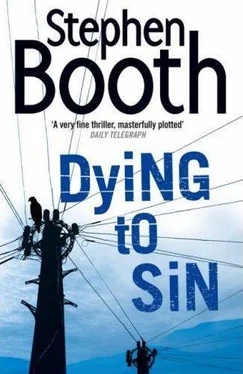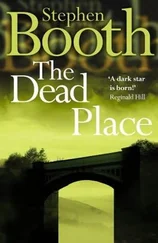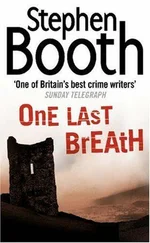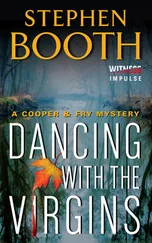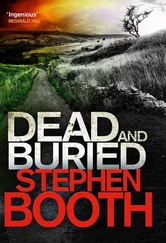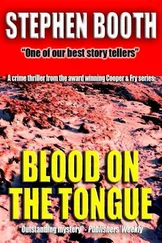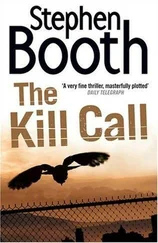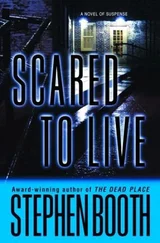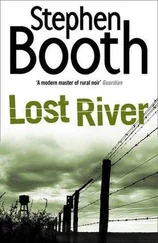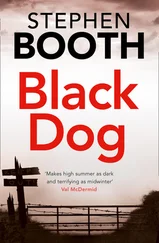Stephen Booth - Dying to Sin
Здесь есть возможность читать онлайн «Stephen Booth - Dying to Sin» — ознакомительный отрывок электронной книги совершенно бесплатно, а после прочтения отрывка купить полную версию. В некоторых случаях можно слушать аудио, скачать через торрент в формате fb2 и присутствует краткое содержание. Жанр: Полицейский детектив, на английском языке. Описание произведения, (предисловие) а так же отзывы посетителей доступны на портале библиотеки ЛибКат.
- Название:Dying to Sin
- Автор:
- Жанр:
- Год:неизвестен
- ISBN:нет данных
- Рейтинг книги:3 / 5. Голосов: 1
-
Избранное:Добавить в избранное
- Отзывы:
-
Ваша оценка:
- 60
- 1
- 2
- 3
- 4
- 5
Dying to Sin: краткое содержание, описание и аннотация
Предлагаем к чтению аннотацию, описание, краткое содержание или предисловие (зависит от того, что написал сам автор книги «Dying to Sin»). Если вы не нашли необходимую информацию о книге — напишите в комментариях, мы постараемся отыскать её.
Dying to Sin — читать онлайн ознакомительный отрывок
Ниже представлен текст книги, разбитый по страницам. Система сохранения места последней прочитанной страницы, позволяет с удобством читать онлайн бесплатно книгу «Dying to Sin», без необходимости каждый раз заново искать на чём Вы остановились. Поставьте закладку, и сможете в любой момент перейти на страницу, на которой закончили чтение.
Интервал:
Закладка:
‘That’s right. Because they’re both useless once you get past about thirty-six hours. Here, we’re well past that by a factor, of … oh, I’d say about three hundred or so. The only possibility you’re left with in this case is finding some evidence of the last time your victim was seen, or the last time anyone had contact with her.’
‘A factor of three hundred would make it about a year,’ pointed out Fry.
‘Oops, did I let slip an opinion? It was unintentional, I assure you.’
‘But appreciated, all the same. We need anything we can get.’
‘Well, there’s one thing I’ve never seen before,’ said Mrs van Doon. ‘There seems to be an extraordinary amount of tooth decay for an individual of this age. Quite excessive. I propose to consult the forensic odontologist for a specialist opinion.’
‘If the victim had some unusual medical condition, that might help us tremendously.’
‘Yes …’ The pathologist hesitated, as if about to say something else. ‘Well, we’ll see. No point in speculating too much, is there? I know we’re as one on that point, Detective Sergeant.’
Cooper settled himself back at his desk in Edendale and opened the records book carefully. The bound ledger only went back to the 1980s, presumably to the time when the brothers had first taken over the farm from their father. Their names were inscribed inside the front cover, with the date the book had been started.
He was pleased to see that whoever was responsible for the neat, copperplate handwriting had taken the trouble to record the stocking rates and cropping rotas on the farm, as well as adding up the accounts. DEFRA would have been proud of them.
At the time the ledger was started, the main enterprise on the farm had been a flock of Swaledale ewes — four hundred head of them, either bred pure or crossed to a Bluefaced Leicester ram to give mule lambs for sale. It seemed that all the purebred Swale ewe lambs were retained as flock replacements, and sent into Lincolnshire for their first winter, while the males were sold as stores through Bakewell market. It was still standard practice on many sheep farms in the Peak District.
A few years later, a small herd of Belted Galloway cattle had been tried. Cooper nodded approval. That was a good idea of someone’s. Galloways were hardy cattle, and that was important because there was little space for in-wintering cattle at Pity Wood Farm, and the breed would have been capable of making use of the coarser grasses.
Flicking through the records, Cooper began to see the evidence of falling prices and rising costs as the years went by and Pity Wood entered the 1990s. The thriving enterprise that Raymond and Derek had inherited from their father was gradually, inexorably, getting into trouble. He tried to imagine the brothers discussing their financial problems by the fireside in the evenings, but he couldn’t manage it. An anxious silence filled his head, both brothers reluctant to talk about what was worrying them, perhaps even more reluctant to admit there was anything wrong. Optimism in the future, that was the keyword in those days.
And then, in 1999, he saw the first attempts at diversification. That was already too late. The writing had been on the wall for a decade by then. After the arrival of Tom Farnham, there had been other failed enterprises — a farm shop, a campsite, holiday lets, rare breeds of sheep.
There was diversification, and there was diversification. If you had half a million pounds to spare, you could buy into the buffalo meat business with your own hundred-strong breeding herd, including butchery and storage equipment and stalls at farmers’ markets. Cooper had seen it advertised quite recently. A water buffalo enterprise over at Chatsworth, and thriving by all accounts.
But sheep? There were already half a million sheep in the national park alone. They were a feature of the landscape, those white, woolly blobs scattered across the hillsides like snow. They were a driving hazard on the unfenced roads, especially on the high passes of the Dark Peak at night, when they were drawn to the tarmac for warmth and their eyes gleamed suddenly in a driver’s headlights as he rounded a bend.
Yes, many people would say there were already too many sheep in the Peak District.
When Fry returned from the mortuary, Cooper was unfolding a map attached to some legal documents.
‘You know, Tom Farnham said they used to park farm trailers on that bit of ground where the first grave was found.’
‘Yes?’ said Fry.
‘Well, I’ve been going through the deeds, and there was a copy of a map drawn up for the conveyance between the Suttons and the previous owners. It clearly shows a building on that part of the property.’
‘Are you sure?’
‘Yes, and it’s a pretty big building. It looks as though it ran from the corner of the paddock almost to the first gate, right along that wall.’
‘Does it specify what the building was?’
‘No, it just says “outbuildings”.’
Fry looked at the map. ‘It might just have been re-drawn from an old document. They don’t bother to come out and re-map a property every time it’s sold, do they? So this map probably shows the way the farm looked at the time of an earlier purchase.’
‘Possibly,’ said Cooper.
‘Farms change appearance all the time, don’t they? Farmers knock old buildings down and put up new ones, willy-nilly. They’re not subject to the same planning regulations as the rest of us.’
‘That’s true. But a building this size … well, it wasn’t just some old pigsty they didn’t need any more.’ Cooper shook his head. ‘It’s a shame there aren’t any photos of Pity Wood from that time.’
‘We should be so lucky.’
He put the map back into the document wallet where he’d found it.
‘You know that area should never have been disturbed?’ said Fry. ‘Not by the building contractors, anyway. Jamie Ward was digging a completely unnecessary trench when he came across the first body.’
‘The new owner might have been planning on calling in some landscape gardeners later on, or he might have wanted to tackle the garden himself.’
‘This is the Manchester solicitor, Goodwin?’
‘Right.’
‘Is he a keen gardener?’
‘I have no idea, Diane.’
‘I do wonder why he bought that farm,’ said Fry.
‘Didn’t he say he wanted to move out into the country for some peace and quiet? You called it downshifting, didn’t you?’
‘I meant, why that farm? Why Pity Wood? The place is a complete mess. There must be lots of more attractive propositions within commuting distance of Manchester.’
‘Of course. But probably it was a question of price. This property would have been a lot cheaper than most. You just need deep pockets for the modernization work.’
‘What if he had another reason for choosing that particular property? A more pressing reason?’
Cooper thought about it for a moment. ‘You mean he might have known there were two bodies buried on the farm and couldn’t risk anyone else buying it, in case they discovered the graves?’
‘Well?’
‘It’s possible,’ said Cooper. ‘It might explain the hurry.’
‘Was there a hurry?’
‘They didn’t take the time for an equipment sale.’
‘Oh, that. Well, all that stuff is starting to make a bit of sense now. I think I’ll give Mr Goodwin a call and ask him why he chose Pity Wood.’
‘You’ve no evidence for this theory, Diane.’
‘Somebody has to use a bit of initiative.’
Cooper raised an eyebrow. He thought he could see Fry already starting to respond to the imminent arrival of the new superintendent. No doubt she believed she’d do better under a female boss. He didn’t think that DCI Kessen or DI Hitchens had ever shown any bias for or against her, and had never avoided giving Diane responsibility because she was a woman. But perhaps he wasn’t in the right place to notice. From Diane’s point of view, the situation might look completely different. It was possible that she observed lots of little things, small signs of favour or disfavour that no one else saw or would know how to interpret.
Читать дальшеИнтервал:
Закладка:
Похожие книги на «Dying to Sin»
Представляем Вашему вниманию похожие книги на «Dying to Sin» списком для выбора. Мы отобрали схожую по названию и смыслу литературу в надежде предоставить читателям больше вариантов отыскать новые, интересные, ещё непрочитанные произведения.
Обсуждение, отзывы о книге «Dying to Sin» и просто собственные мнения читателей. Оставьте ваши комментарии, напишите, что Вы думаете о произведении, его смысле или главных героях. Укажите что конкретно понравилось, а что нет, и почему Вы так считаете.
